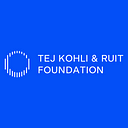A Punishment for Menstruation: An Exploration into Discrimination
Chaupadi is a form of menstrual taboo that follows the superstitious idea that when a woman or girl is menstruating, they are “impure”. Though banned by Nepal’s Supreme Court in 2005, it is still carried out in mountainous regions in Western Nepal today.
The word originates from chau meaning menstruation and padi meaning women and has been practised for centuries across the country. It has created and maintained an idea that by nature, a woman body is wrong, dangerous and should be punished.
For one week a month whilst a woman menstruates, she is expected to isolate herself completely from other people. The superstition arose from a myth that Indra, the King of the Devas in Hindu mythology, created menstruation as a way to distribute curses. This line of thought suggested that if a menstruating woman was to touch a tree, it will never grow fruit again; if she consumes milk, the cow will no longer produce milk; if she touches a man, he will become unwell; if she reads a book, the goddess of education will become angry.
Though these extremes may not be entirely followed now, there are still rules in place for a menstruating woman. She is permitted from handling certain utensils; touching water sources; handling cattle and in some cases from sleeping in her own home. Women are often expected to sleep in a hut known as a goth with little to no bedding and there are an array of risks associated with these huts. They are often poorly built and offer little insulation as well as exposing the women to animals, extreme weather and in some tragic cases the dangers of strangers passing by. Multiple women and girls have died from diarrhoea, dehydration, smoke inhalation and animal bites in recent years, some as present as 2019.
The segregation from wider society during a woman’s menstrual cycle, out of fear of becoming “impure”, means that medical attention isn’t provided when it’s needed most. Though women are not permitted to see a doctor, they must still work during menstruation. Crop failures, droughts, death and disease have been blamed on menstruating women in the past and violence towards women takes place, sometimes seen in boys as young as six as they throwing stones at young menstruating girls.
The American broadcaster NBC released a documentary in 2017 on chaupadi. In the short video, a young woman explains that in the village of Dailekh, western Nepal, it is a very common practice. She explains that the goth is far from her house and very unsafe, suggesting that women are forced to “live like animals”.
Seen to be impure for five to seven days, the documentary highlights some modern young women who are beginning to push back against the malpractice of chaupadi. Aware that older generations are the ones to perpetuate these traditional ideas, and they will soon pass away, some young women are starting awareness programs to end the shame around female nature in the hopes that they will end this inhumane practice.
This is just one example of discrimination that women face in some developing countries. Access to healthcare is limited for all people that live in remote areas, however it is particularly rife for menstruating women who are already seen as second-class citizens simply because they are women.
The Tej Kohli & Ruit Foundation witnesses this barrier to healthcare regularly. Just as the young women in the documentary know, improving access and awareness around healthcare is an important step in reducing inequality and preventing discrimination.
This story is part of the series, An Exploration into Discrimination, by the Tej Kohli & Ruit Foundation. Using an investigative approach, this series will explore how cataracts can affect the lives of women in low-income communities, and how deteriorating eye health can be a catalyst for discrimination and rising levels of inequality.
